Patchwork Family Farms | Feeding Farm Aid
Farm Aid, an organization that supports and advocates for family farms year-round and holds an annual fundraising concert, celebrated 36 years this September. The lineup included Farm Aid’s founders, Willie Nelson and John Mellencamp, and Dave Matthews, Tyler Childers and many more. The music brought people from all over the country to gather in support of independent family farms and keeping America growing.
In the admissions line, among thousands of others, I overheard one attendee remark that the first stop they needed to make was at Patchwork Family Farms booth for a pork chop sandwich.
The smoky aroma of pork chops, ham steaks and andouille sausages filled the air upon entering the venue. In a few short moments a line was forming at the Patchwork Family Farms booth and their crew of 8 was busy grilling and serving customers. The booth is lined with “Stop Factory Farms'' and “Support Family Farms” posters and other information about advocating for family farms.
“I remember taking a bus to the first Farm Aid in 1985,” recalled Roger Allison, family farmer, Patchwork staff member and founder of Missouri Rural Crisis Center (MRCC).
Patchwork and MRCC have a long history with Farm Aid. Patchwork Family Farms has been feeding concert attendees at Farm Aid for twenty years with pork raised on independent family farms in Missouri. Patchwork started in 1993 and is a program of the Missouri Rural Crisis Center, a family farm membership and advocacy organization that began the same year as Farm Aid, 1985. Patchwork is currently working with ten producer members across Missouri.
Patchwork started when hog producing members of MRCC saw that their market was being taken from them by corporate, industrialized agribusiness. Independent hog producers were being put out of business, so MRCC decided to set up a cooperative model that buys hogs directly from producers and brings them to small scale meatpacking plants, which also have been negatively impacted by the corporate takeover of livestock production.
“It's not only good pork--pork raised by independent family farmers, the traditional way that tastes better--but it also keeps money local in our rural communities; and, it gives consumers access to family farm pork, as opposed to industrial, corporate pork,” explained Tim Gibbons, MRCC’s Communications Director.
Historically, Missouri hog farmers were able to make a healthy living with a competitive, open market. Family farms were paid a good price, and local hog production fueled local economies. Over the last 30 years, agriculture has become increasingly corporatized. Today, over 70% of the hog market is controlled by four multinational corporations. Since 1985, the United States has lost 84% of hog producers, with Missouri having lost nearly 91% of their hog farmers. The retail cost of meat has increased while the hog producers share of the retail dollar has decreased.
Patchwork is in response and an alternative to corporate pork, and they sell meat to Missouri restaurants, grocery stores and other retail customers as well as at events such as Farm Aid. “Patchwork is pork with a message,” said Tim. “And the corporations we're fighting, aren’t afraid to lie, cheat and steal. And they're doing it in large part by controlling our democratic process. We believe that we need to have real representation in Congress and our statehouses, that listen to what is going on out here and put in place policies that support people, independent family farmers, consumers, and our land, water, air, and climate.”
From Left to Right: Bryan Streubig (volunteer), Sam Blair (volunteer), Gordon Damron (staff), Tim Gibbons (staff), Jamie Blair (staff), Rhonda Perry (staff), Roger Allison (staff), Layah VerDught (staff), Bryce Homan (volunteer)
MRCC helps organize their members and creates opportunities for them to have their voices heard within the democratic process. “For example, MRCC is organizing for a Farm Bill that is written by and for farmers and consumers, as opposed to our historic Farm Bills that have been written by corporations for corporations. We need to have representation that's really democratic, and MRCC helps people get engaged in the process,” said Tim.
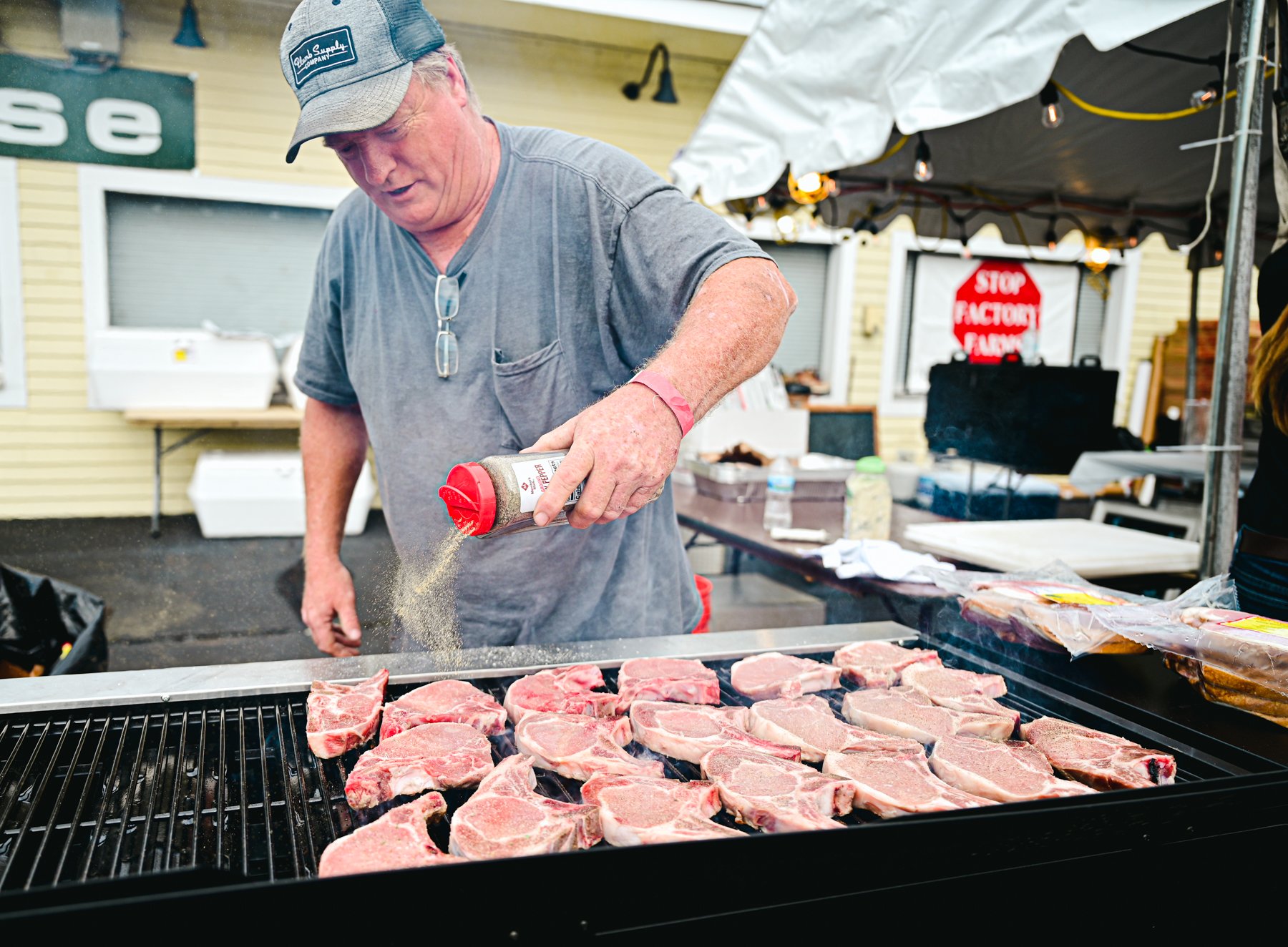
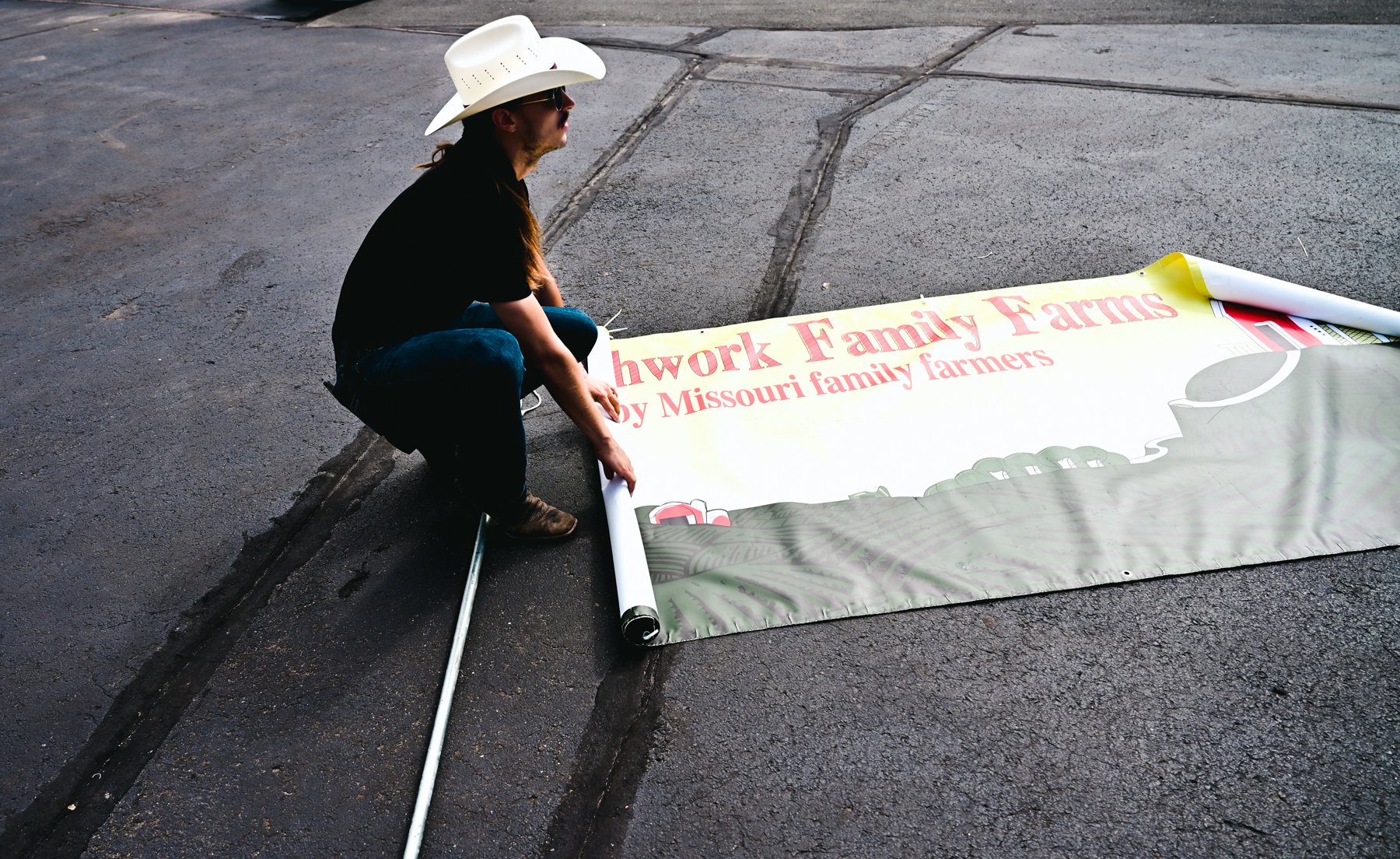
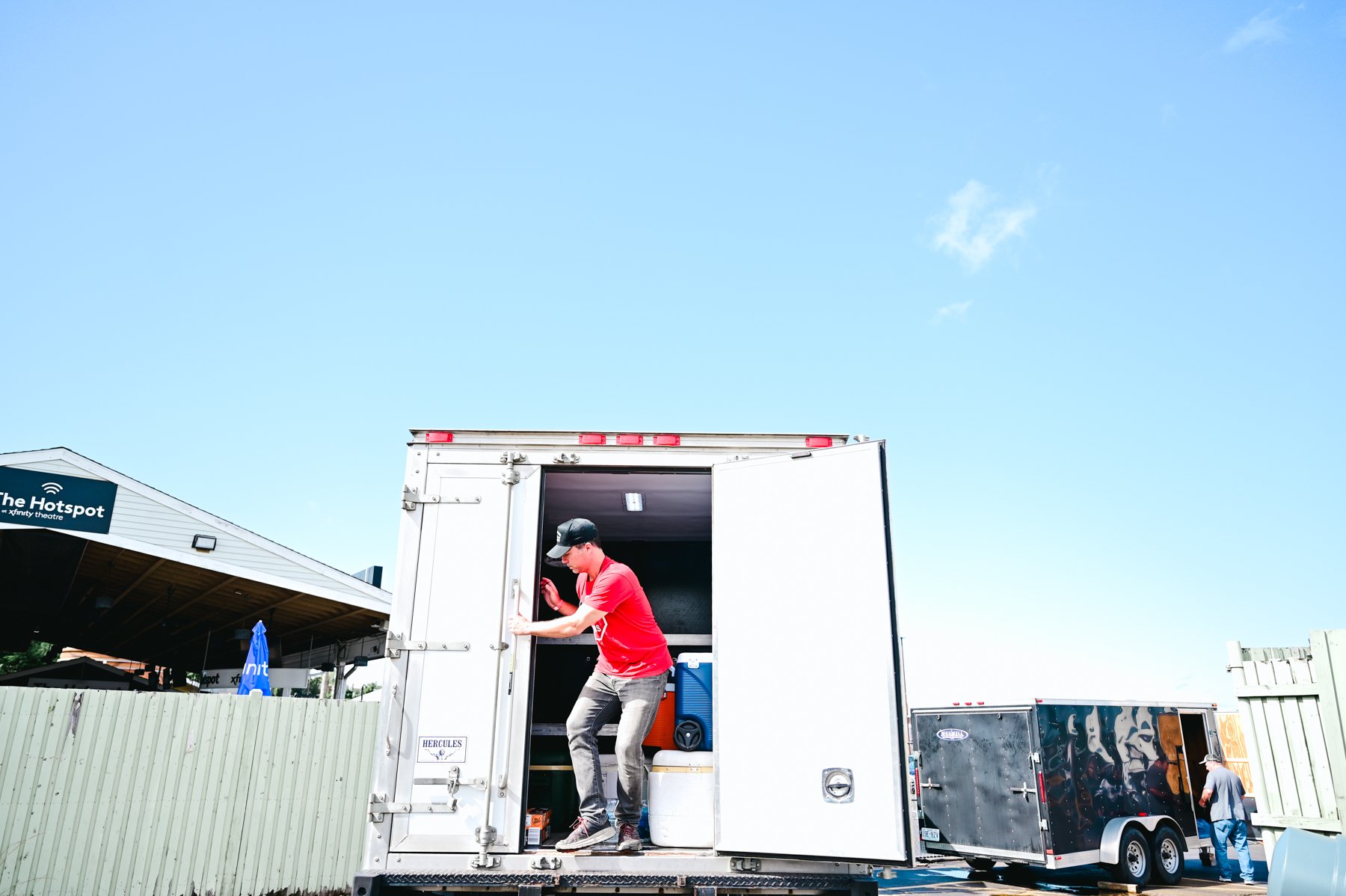
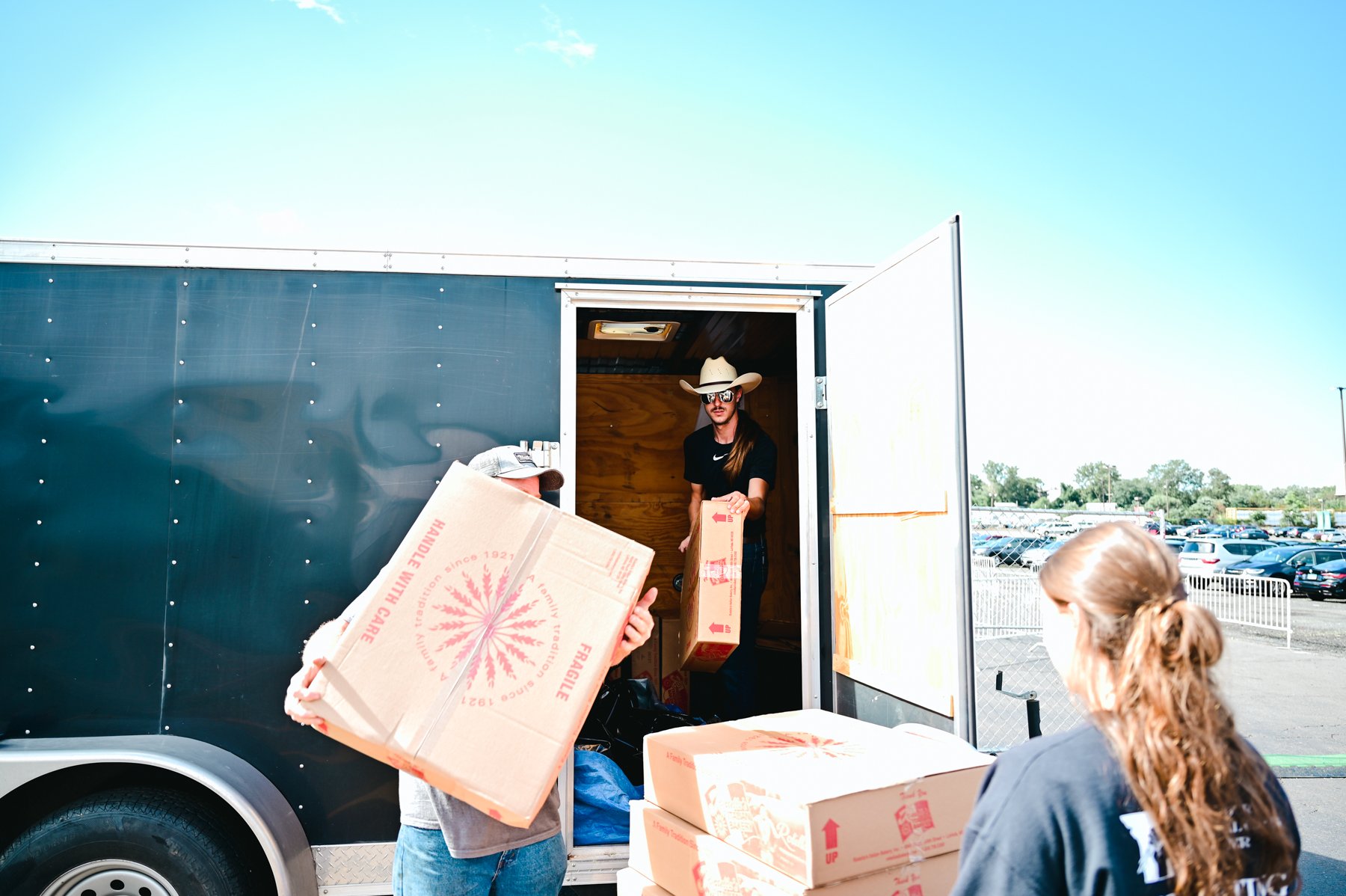
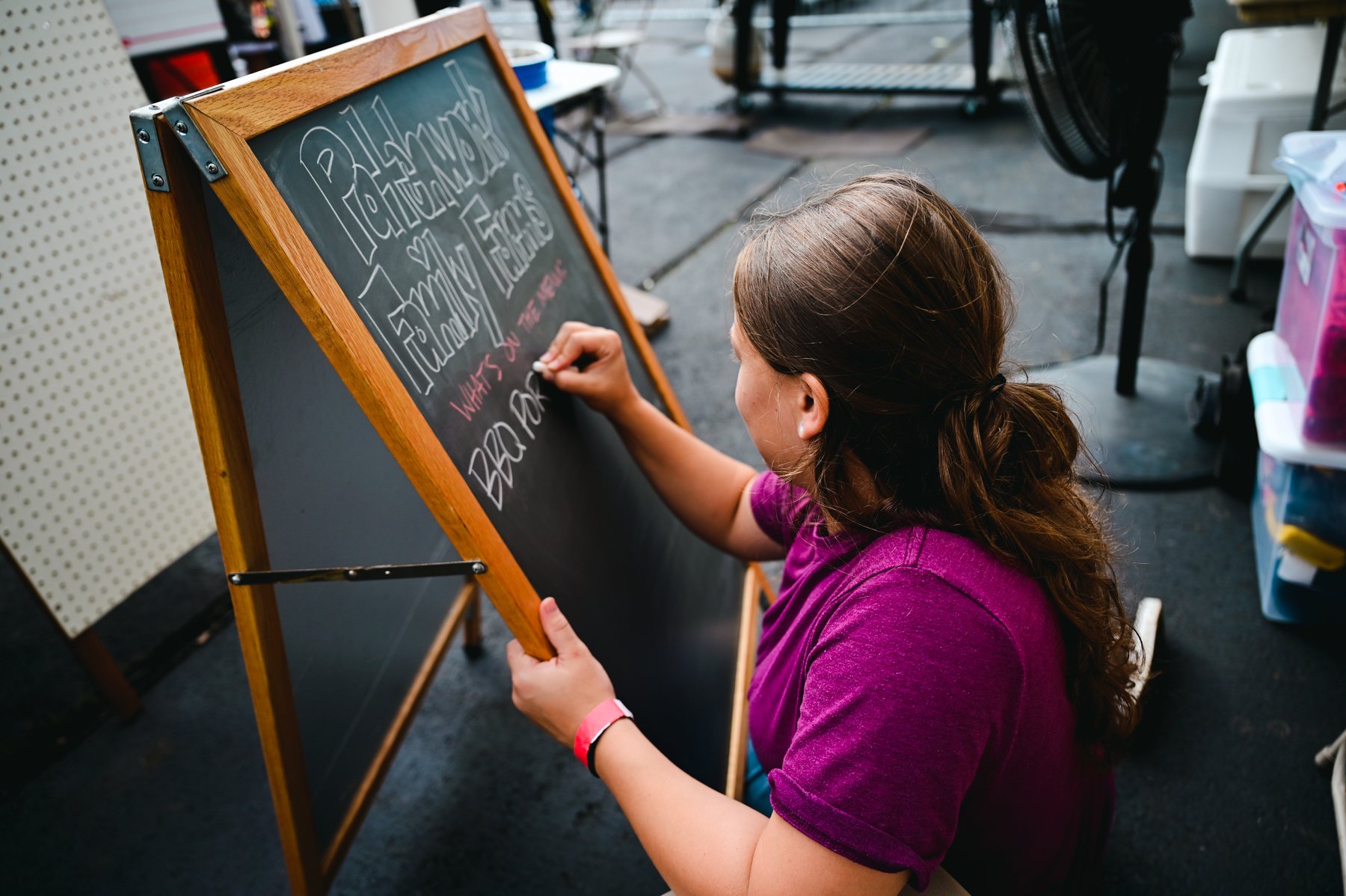
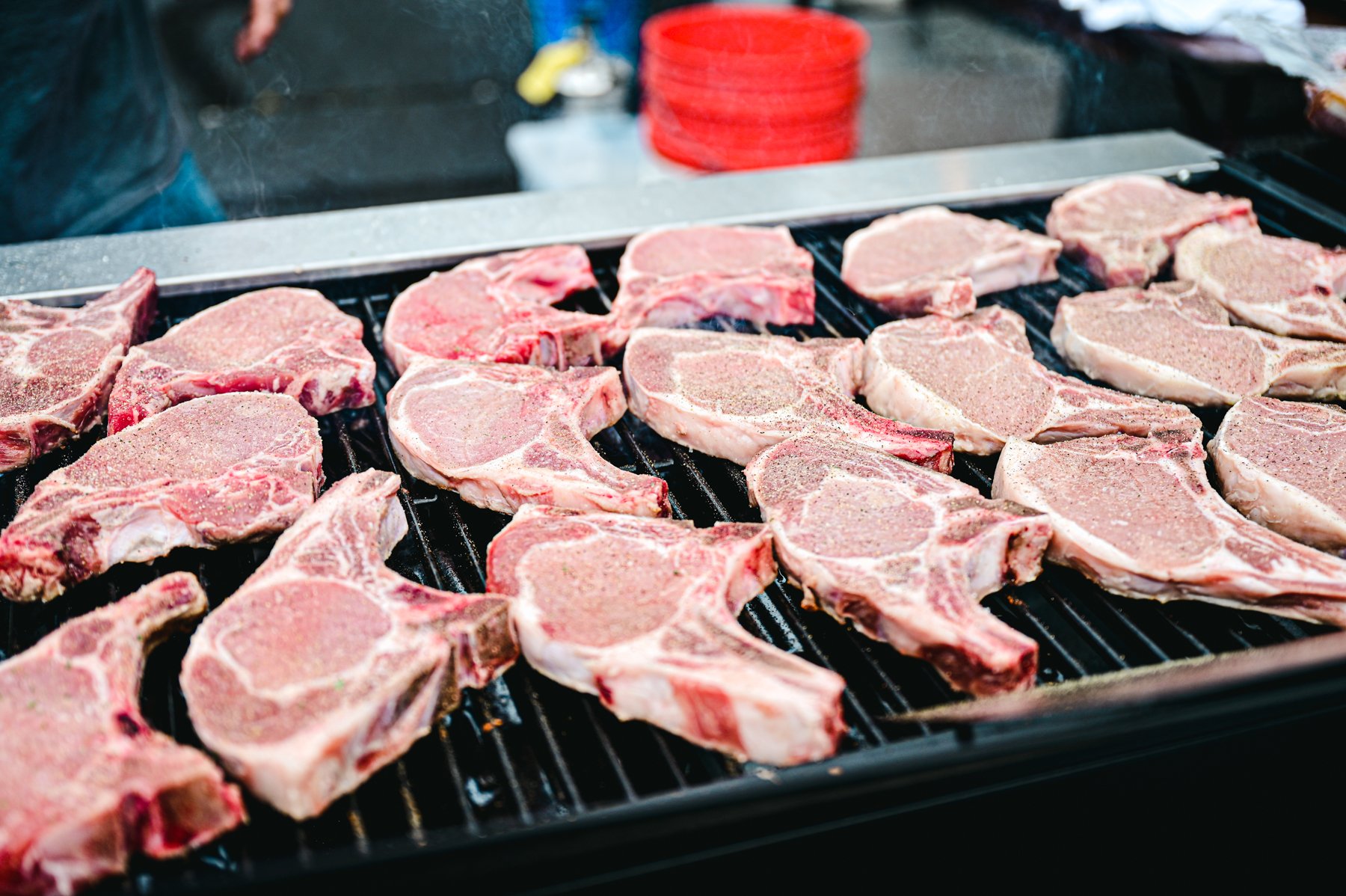
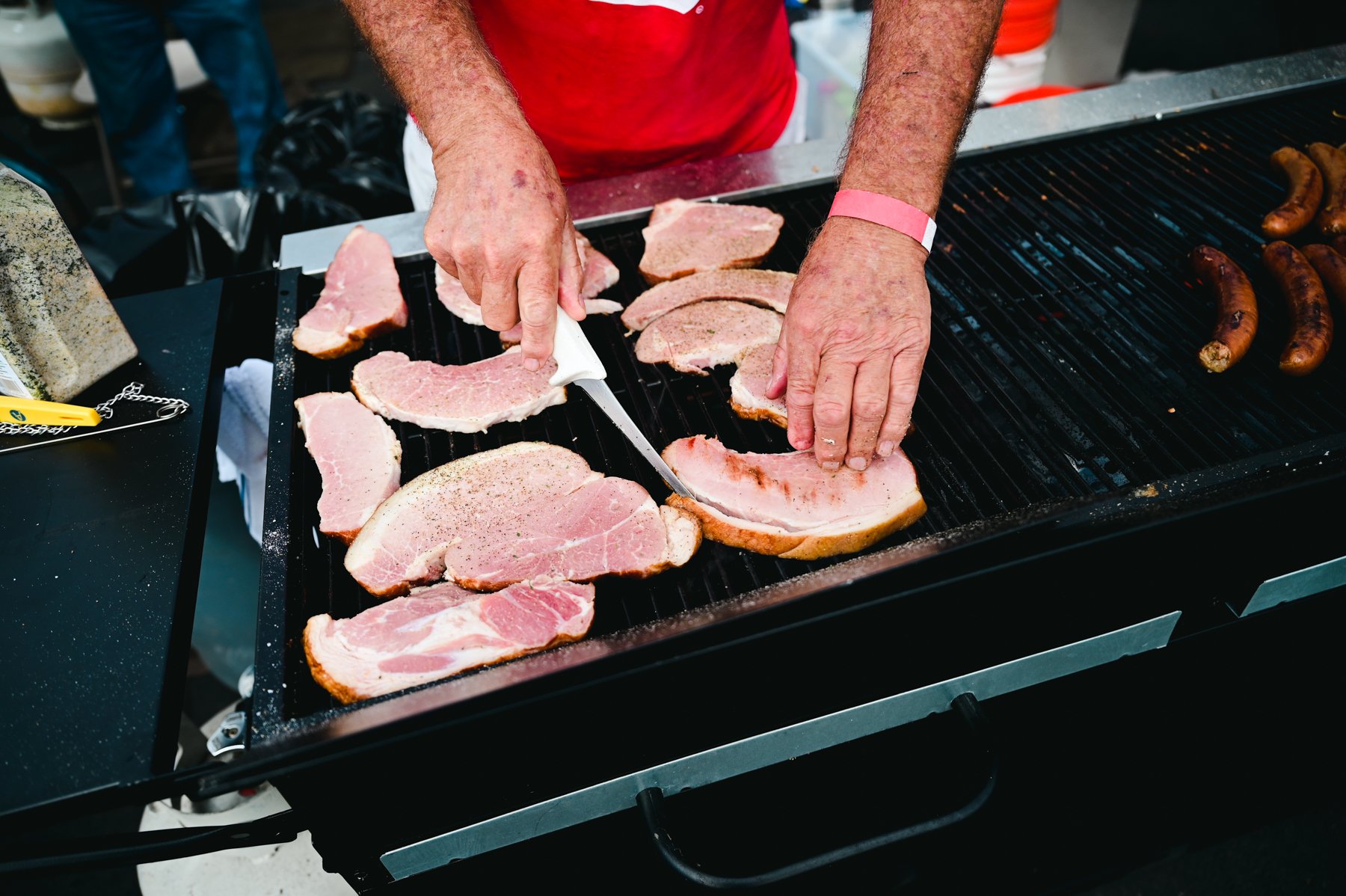
Many other non-profit and grassroots organizations gathered at the Farm Aid concert and surrounding events to support, learn, and bond with one another. Farm Aid hosted several panels of speakers covering topics including the past and future of Black farmers, climate change, and building hope and policies for a bright future of agriculture in the United States.
“The Farm Aid concert is a special time for us--it’s a place where we can come together and talk about issues and organizing, and visit with all of our friends and allies that are in this fight together,” said Tim. “This work isn’t transactional, and Farm Aid is the epitome of the relationships, love and action that brings us all together.”





